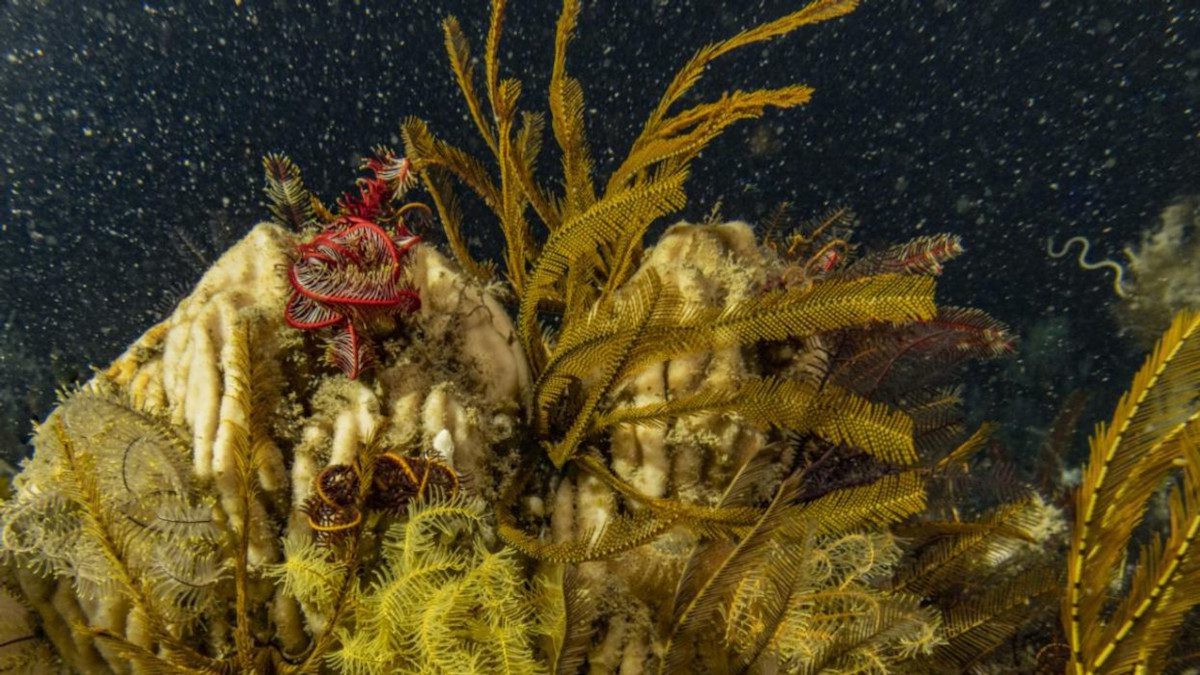
As the focus at COP26 in Glasgow shifts to greening the world’s transportation systems, electric vehicles (EVs) are in the spotlight. However, it is crucial that as we move from internal combustion engines to electric vehicles, we do not not risk disturbing our planet’s largest carbon sinks by giving the destructive deep-sea mining industry the green light and opening up a new frontier of industrial extraction, writes campaign organisation the Deep Sea Conservation Coalition.
Deep-sea mining is an emerging, extractive industry that could threaten the health of the ocean in as little as two years. Prospective mining companies seek to strip-mine the deep-seabed, sucking up coal-sized rocks, known as polymetallic nodules for use in electric vehicle batteries, pumping sediment and toxic metals back into the ocean. Not only would the nascent industry directly destroy ecosystems and species that are only just being discovered, but it could also negatively impact fisheries, which communities across the world depend on.
The deep sea also plays a crucial role in carbon storage as one our planet’s biggest carbon sinks. Studies have shown that even after small-scale experimental deep-sea mining events, carbon cycling has not recovered after 26 years. The potential impacts on biodiversity and globally important carbon sinks have led more than 600 scientists and policy experts from 44 countries to call for a halt to the industry.
Resource extraction has accounted for 90% of biodiversity loss worldwide. Under no scenario would deep-sea mining replace mining on land. If it were to go ahead, it would only serve to extend the footprint of mining, potentially doubling or tripling the area or nature of impact from mining on the globe with greater risks to people and planet.
According to a recent Earthworks report, it is already technologically possible to recover and recycle upwards of 90 percent lithium, nickel, cobalt, and copper. Clarios, a battery manufacturer responsible for producing 30% of all EV batteries, have also stated that battery recycling should be baked into battery designs rather than thought of at the end of the life cycle. The Deep Sea Conservation Coalition’s Director Sian Owen said: “As we transition to a cleaner, greener economy, we have a unique opportunity. By reducing overall demand for new minerals and investing in mineral recycling and reuse, we can greatly improve environmental and social outcomes of the mining industry.”
Companies including Volvo, BMW, Samsung SDI, Phillips and Google are committing to keeping minerals sourced from the deep ocean out of their products and have backed a moratorium on deep-sea mining.
Farah Obaidullah, Global Campaigner for the DSCC commented: “Companies can lead the way by committing to keep the deep out of their products, prioritizing the health of people and planet before it is too late and we cause more damage to the very ecosystems that sustain us in the face of the climate emergency.”
Batteries for electric vehicles that contain none of the minerals deep-sea miners are targeting (including cobalt, nickel and manganese) also continue to enter the market. In April 2021, BYD, the world’s number two electric carmaker, announced that it is removing cobalt, nickel and manganese from its vehicle batteries entirely, enabling it to produce vehicles at a lower cost to consumers and with a lower fire risk. Solid-state battery technology, requiring no minerals sourced from the deep, is predicted to create new opportunities for cheap, safe and high performing batteries and the UK government is also funding research to develop a cobalt and nickel-free solid-state battery system which costs half that of comparable lithium-ion.
As we move forward and away from our reliance on fossil fuels, it is essential that the cleaner alternatives we seek do not undermine the natural systems we rely on to safeguard us from the worst impacts of the climate crisis. We need to make smarter use of the resources we already have, rather than causing irreversible damage to the ocean and risking our planet’s largest carbon sinks.







